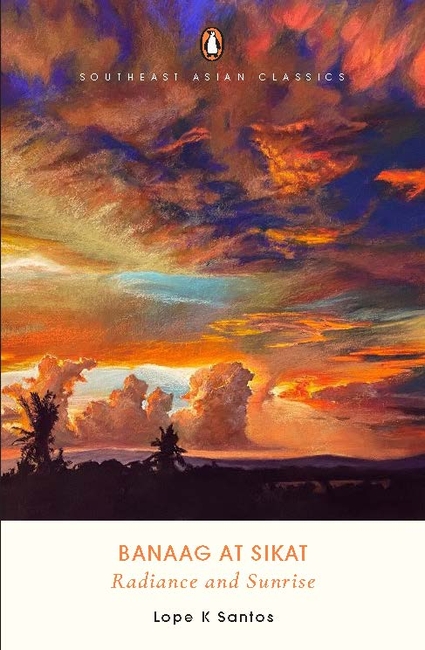
Lope K Santos’ novel, Banaag at Sikat, is a love story framed in the context of a political tale. Published in 1906, it became the fountain head of social realism in the Tagalog novel and hailed as Asia’s first proletariat novel. It revolves around Delfin, a poor man in love with Meni, a capitalist’s daughter. Delfin is a socialist while Felipe, his friend, is an anarchist. Delfin wants the citizens to have more rights in business and property relations. He believes that society could be changed through education. On the other hand, Felipe believes in tearing down society’s walls. Factories should be owned by those who work there and land owned by those who till it. Although he is a landlord’s son, Felipe hates his father’s ways. He wants to see a society with equal status for all, where the horizon of hope is limitless. Banaag at Sikat mirrors the clash of forces during the early days of the American empire. Its burning passages on race, class, and colonialism still resonate today. Translated by ‘one of Asia’s best writers’, may this modern rendering inspire new readers to shape their lives so they ‘can help change the world’.
Published: Dec/2021
ISBN: 9789814914055
Length: 388 Pages